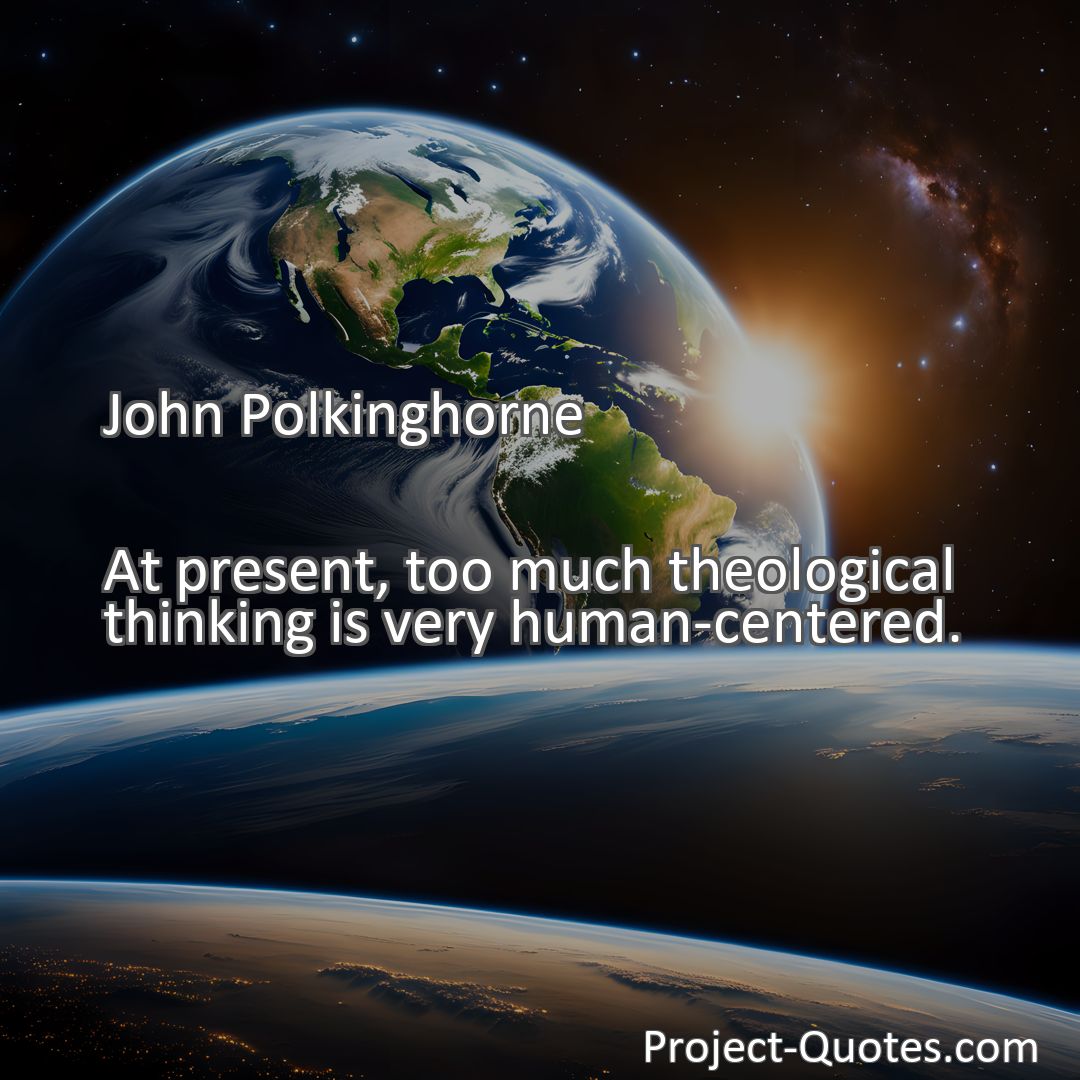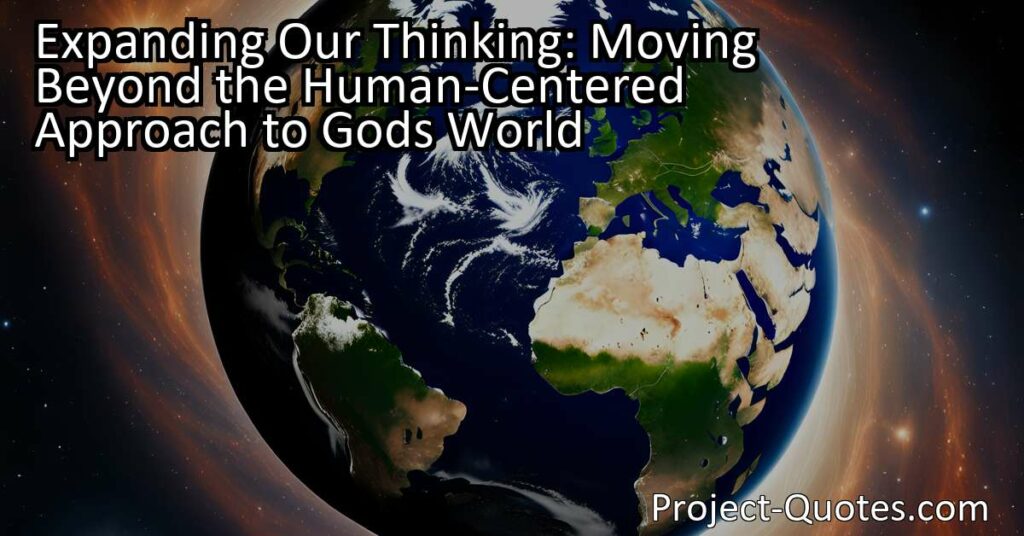At present, too much theological thinking is very human-centered.
John Polkinghorne
In “Expanding Our Thinking: Moving Beyond the Human-Centered Approach to God’s World,” John Polkinghorne encourages us to consider our place in the universe and the importance of every living creature, even a stranded bug. By recognizing that we are part of a bigger picture and treating the world with kindness and care, we can better appreciate the beauty and interconnectedness of all things in this incredible world.
Table of Contents
Meaning of Quote – At present, too much theological thinking is very human-centered.
“Think about the world for a moment. It’s a big place, right? There are mountains that scrape the sky, oceans that stretch further than our eyes can see, and a sky full of stars that boggle our minds. Everything from the tiniest ant to the largest blue whale has its place on Earth. Now, there’s someone named John Polkinghorne who said something pretty interesting about this big, wide world of ours. He noted that ‘At present, too much theological thinking is very human-centered.’
So, what does that mean? Well, theology is just a fancy word for the study of things relating to God and religion. When John Polkinghorne talks about ‘theological thinking,’ he’s mentioning the way people think and talk about what they believe when it comes to God and the big questions of life.
Let’s think about a book club. If everyone in the club only talked about the books that they liked and never listened to anyone else’s opinions, it would be pretty one-sided, right? Similarly, Polkinghorne suggests that sometimes when people think about God and the world, they only think about how it all relates to humans. They might forget to consider the rest of the universe and all the other creatures that live in it.
It’s like when you walk your dog in the park. You know that your dog loves to run and sniff everything. To your dog, the park is a place full of amazing smells and exciting adventures. But if we only think about what the park means to us maybe a place to get some exercise or to relax we might miss out on understanding the park from our dog’s point of view.
Now, when it comes to thinking about God, people often focus on how God relates to human beings. They ask questions like ‘Why are we here?’ ‘What’s our purpose?’ and ‘How should we live our lives?’ These are all important questions, but Polkinghorne believes that we need to expand our thinking beyond just us.
Imagine for a second if we started thinking about God like a great artist, and the whole universe is God’s masterpiece. We’re like one brushstroke in a giant painting. If we only focus on our brushstroke, we’d miss out on the beauty of the whole picture. What about the stars, the mountains, and the ocean? What about the animals and plants and all the things that we don’t fully understand? Don’t they also belong in the picture?
If we start to think about God’s world as a giant, interconnected family where everything has its role and importance, it could change the way we see things. We might start to think more about taking care of the environment because it’s part of the bigger picture. We could learn lessons about life from the way trees grow or the way animals behave. We might even think differently about how we treat other people, understanding that they’re part of the big picture, too.
Also, let’s not forget about the amazing discoveries scientists make about our universe. If we only think about our small part in it all, we might not appreciate the giant leaps in understanding that these discoveries bring. A human-centered view might make us think we already know all there is to know about life and our world, but there’s so much more out there!
Polkinghorne himself is actually a person who knows a lot about science and religion. He was a physicist that’s someone who studies the foundations of how the universe works and he became a priest later in life. So, he understands the universe both through the lens of science and through his faith. He reminds us that just as there’s more to the universe than what we can see with our eyes, there might be more to God than what we understand from a strictly human perspective.
Now, you might be wondering, ‘Why does this matter to me?’ Well, the way we think about the universe and God can actually affect the way we live our lives every single day. If we only think about ourselves, we might not worry too much about things like recycling or being kind to animals. But if we see ourselves as part of a bigger picture, we may start to act differently. We might take that extra step to recycle our soda can or to help a stranded bug get back outside where it belongs.
This bigger way of thinking can even influence how we treat each other. If we recognize that other people are part of the same big, beautiful picture we are, we might be a little more patient, kind, and understanding with them. It can also inspire us to learn more and stay curious so we can better appreciate this amazing world and universe we’re part of.
In the end, John Polkinghorne is encouraging us to zoom out and take a more expansive view of our beliefs and the world around us. He’s asking us to not just think about our place in the universe, but to also consider the universe’s place within our beliefs. Its a bit like realizing that your story is just one part of a much larger book and every page, every chapter, and every character matter.
So, the next time you step outside, look around at this incredible world. Remember that you’re a part of something vast and wonderful. And just like the stars, mountains, and oceans, you have your role to play in the big masterpiece we call life.”
I hope this quote inspired image brings you hope and peace. Share it with someone who needs it today!


